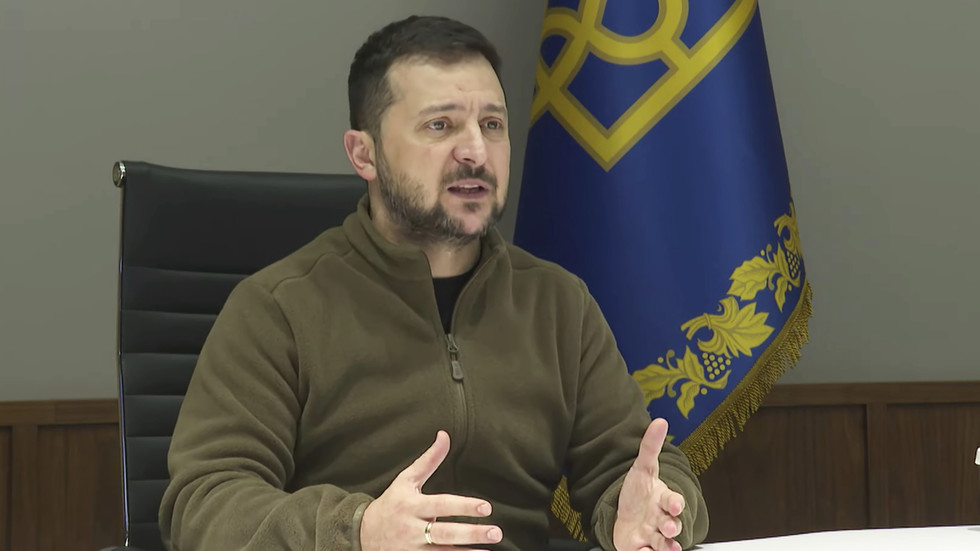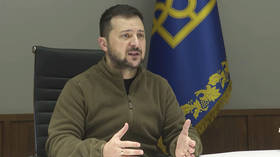
Kiev and Minsk have accused each other of planning imminent invasions

Vladimir Zelensky speaks during a video conference of the leaders of the Group of Seven and Ukraine, in Kiev, Ukraine, October 11, 2022 © AP / Ukrainian Presidential Press Office
Ukrainian President Vladimir Zelensky urged G7 leaders on Tuesday to send “international observers” to his country’s border with Belarus. Minsk has accused Kiev of plotting an imminent attack on Belarus, but Ukraine insists that these warnings are cover for an attack on its own soil.
Belarusian President Alexander Lukashenko announced on Monday that he would form a joint security force with Russia in response to “aggravation” from Ukraine and the West. With officials in Minsk accusing Ukraine of blowing up bridges and amassing tens of thousands of troops along the Ukraine/Belarus border a day earlier, Lukashenko claimed that “Kiev is not just discussing, but is planning an attack on the territory of Belarus” at the behest of its Western backers.
Kiev denies the accusations, with Zelensky telling the Group of Seven on Tuesday that “Ukraine did not plan and does not plan military actions against Belarus,” and accusing Lukashenko of creating the pretext to launch an attack of his own on Ukraine, which would result in Zelensky’s forces being split across two fronts.

Read more
As a “solution,” Zelensky proposed that “a mission of international observers may be stationed on the border of Ukraine and Belarus to monitor the security situation.”
“The format can be worked out by our diplomats,” he continued, asking the G7 “to support this initiative of ours.”
In a joint statement after the virtual address by Zelensky, the G7 leaders called on Lukashenko to “stop enabling the Russian war of aggression” by allowing Russian soldiers on Belarusian soil, and urged his government to “fully abide by its obligations under international law.” Zelensky’s proposed observer mission was not mentioned.
The Ukrainian president did not specify whether he wants observers from the G7 nations or from international organizations. While observers from international organizations would be seen as more neutral, members of the Organization for Security and Co-operation in Europe’s (OSCE) mission in Eastern Ukraine, which began in 2014 but was pulled out just prior to the beginning of Russia’s military operation, were repeatedly accused by Russia of ignoring violations by Kiev.
Two employees of the mission were sentenced to imprisonment by the Lugansk People’s Republic last month for treason, after they were found to have been working with foreign intelligence agencies. At the same time, Ukraine has refused to recognize the international observers overseeing the referendums that saw four former Ukrainian regions vote to join Russia.




